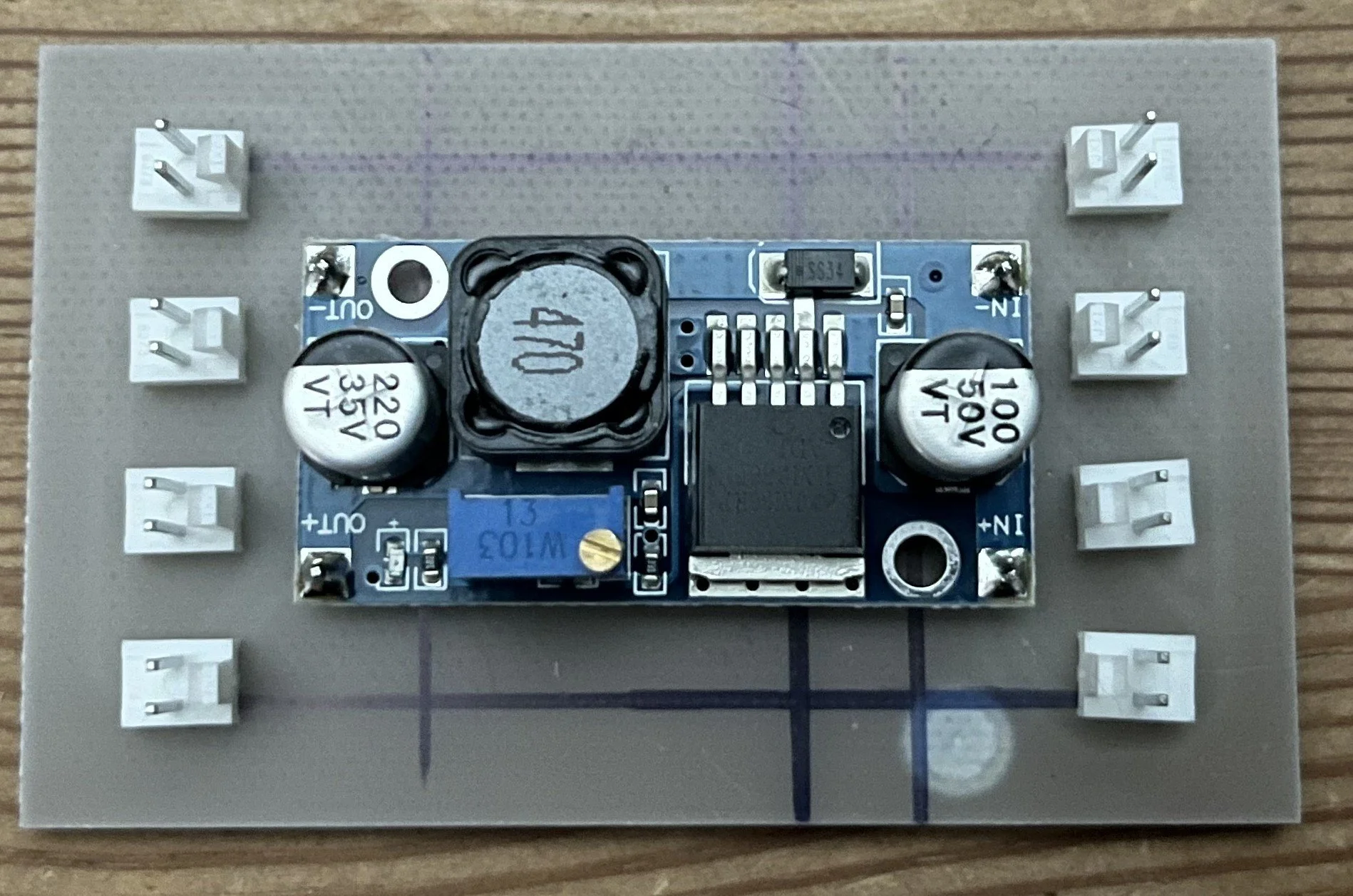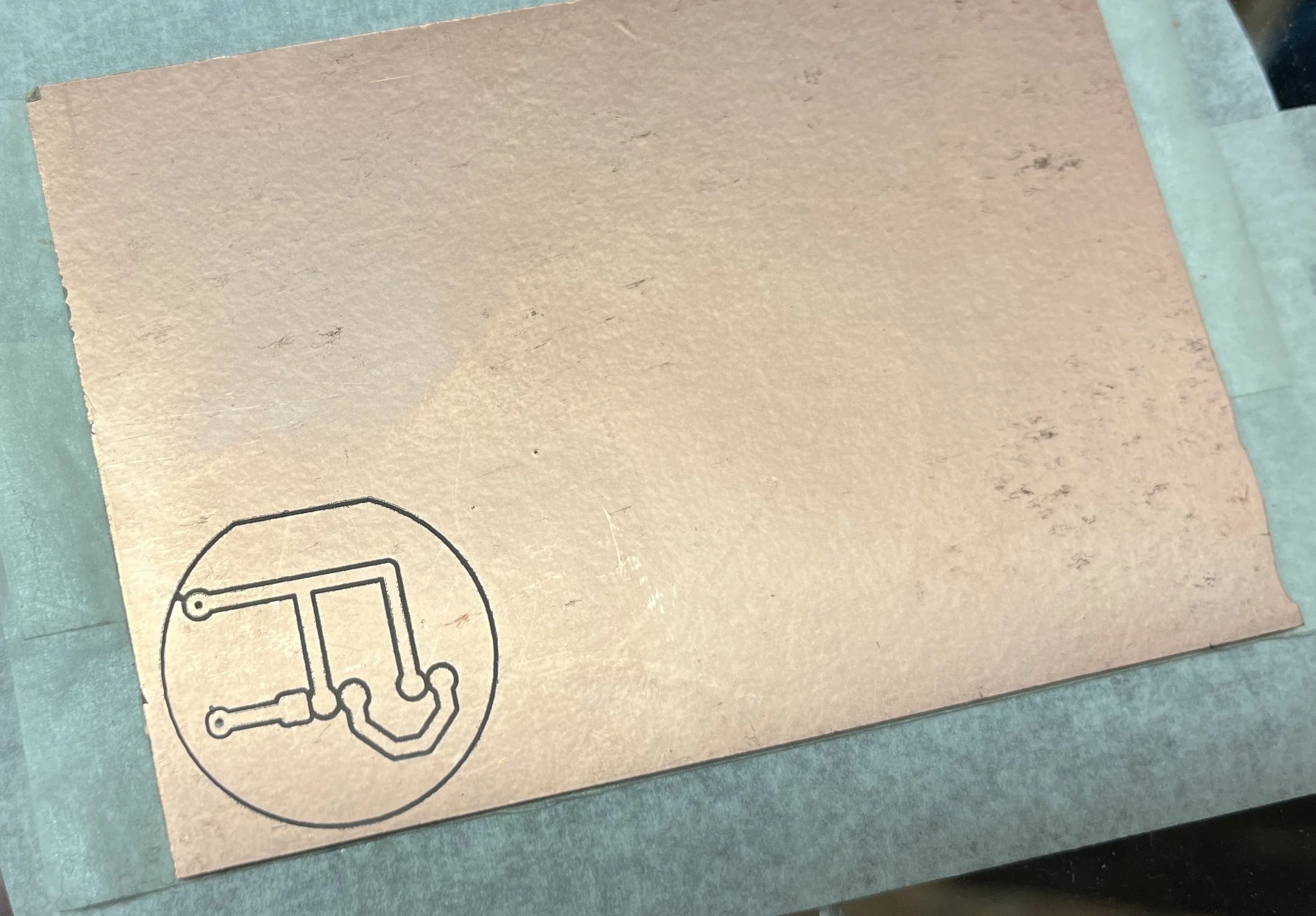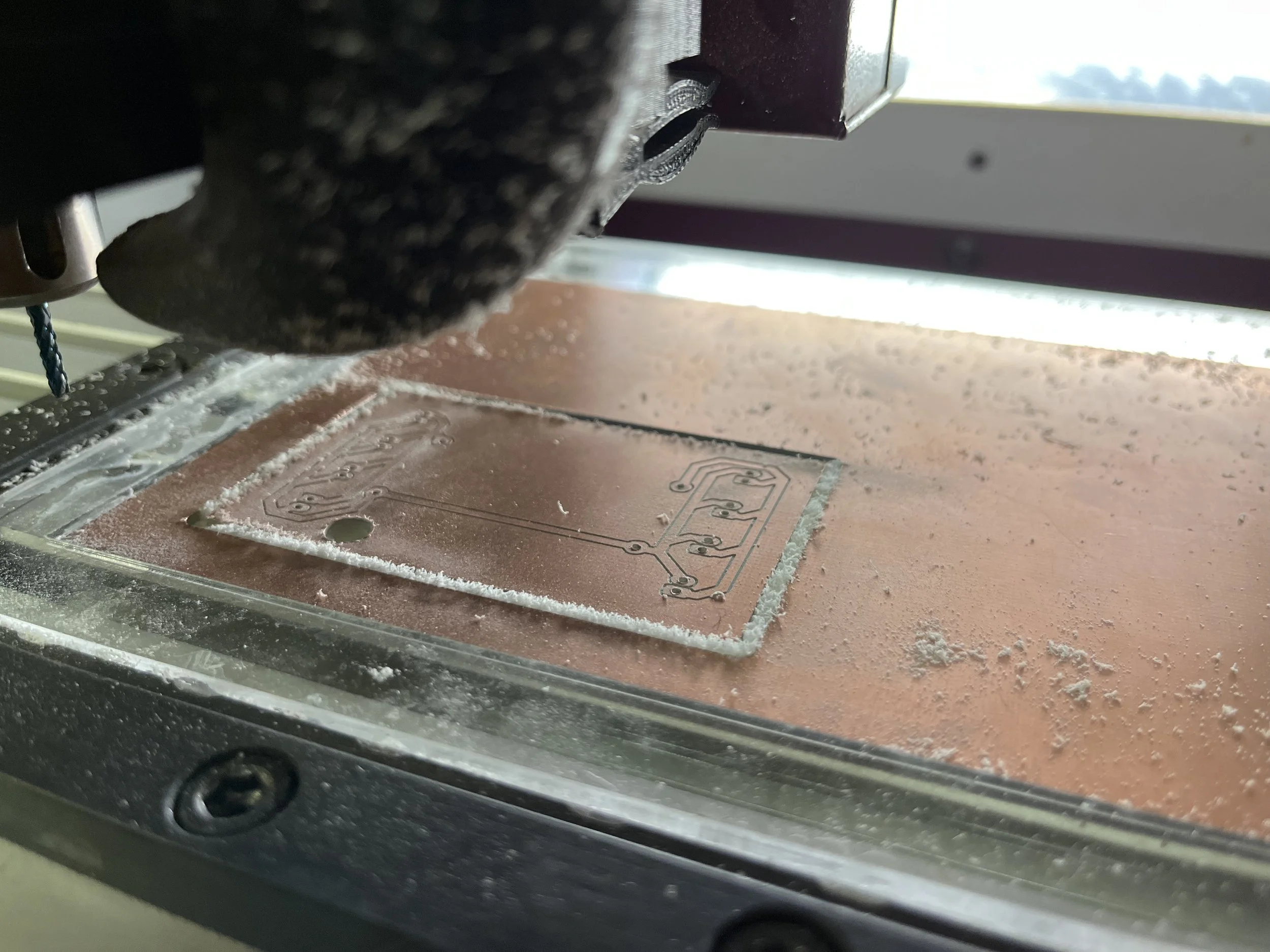In my latest attempt with 0.4mm end mills, I was able to achieve a beautiful etch. However, I encountered frequent breakages of the bits, costing nearly £4 each, which was frustrating. Upon reflection, I realized that the spindle speed was too slow. To address this issue, I have ordered a variety of bits from Ali Express and plan to conduct further testing in a few weeks.
Etched pcb traces using 0.4mm end mill.
In the meantime, I decided to try a new approach by purchasing v bits specifically designed for PCB manufacturing. I utilized a 10 degree 1mm bit for engraving and employed the profile toolpath with the outside vector, offsetting it by a few tenths of a millimeter. This method proved to be very successful, and I used an 0.8mm end mill for the holes and a 2mm end mill for the mounting holes (although I made a classic mistake by confusing radius and diameter when cutting out the board). The end result was my first fully functional board, which was more than adequate and would work well for double-sided boards. However, the settings for the 0.8mm still need work, as the cutting process is currently painfully slow. Despite this, I am thrilled with the excellent progress I have made so far.
The board? A very simple breakout for a buck converter, exactly the kind of basic utility pcb that this process will be invaluable for.



